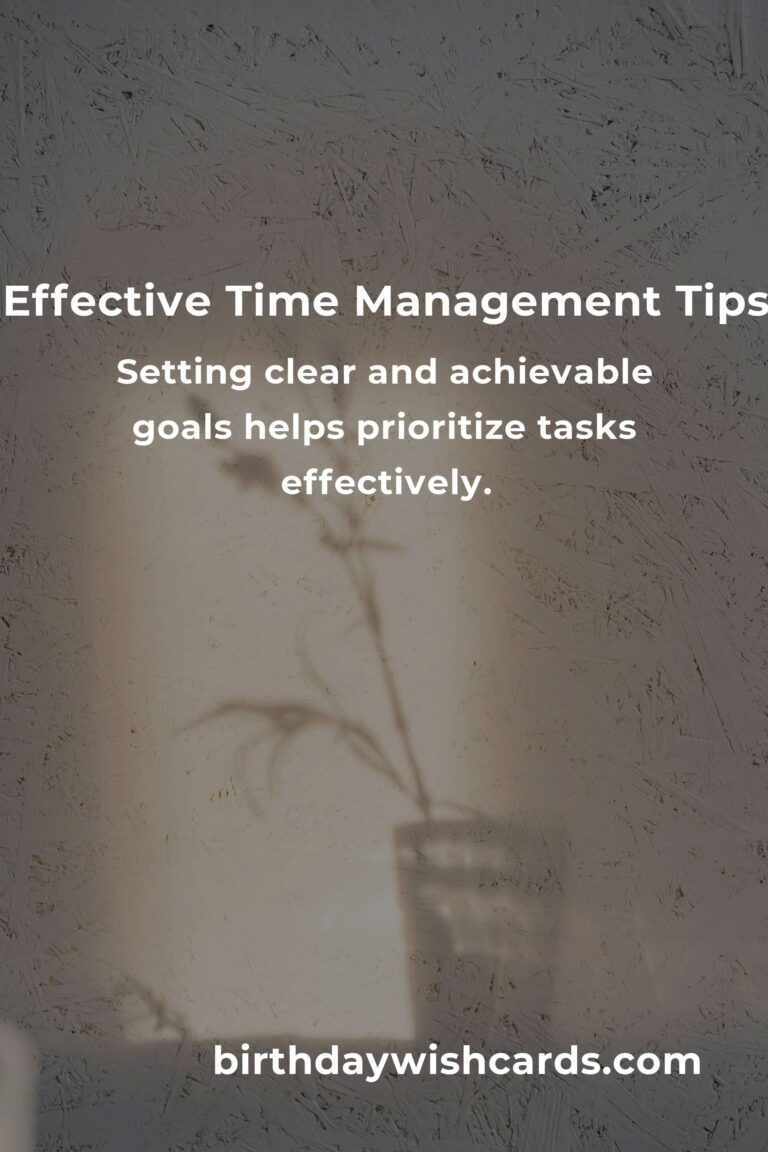
Time management is a crucial skill that can significantly impact both your personal and professional life. With the increasing demands of modern life, managing time efficiently has become more important than ever. In this article, we will explore seven essential tips for practical time management that can help you become more productive and achieve your goals.
1. Set Clear Goals
Setting clear and achievable goals is the first step towards effective time management. Having a clear understanding of what you want to accomplish helps you prioritize tasks and allocate your time wisely. Make sure your goals are specific, measurable, attainable, relevant, and time-bound (SMART).
2. Prioritize Your Tasks
Not all tasks are created equal. Prioritizing your tasks allows you to focus on what truly matters and avoid spending time on less important activities. Use a prioritization method like the Eisenhower Box, which categorizes tasks based on urgency and importance, to help you decide what to focus on first.
3. Use a Planner or Digital Tools
Keeping track of your tasks and appointments is essential for effective time management. Use a planner or digital tools like calendar apps to schedule your day and set reminders for important tasks. These tools help you visualize your schedule and ensure that nothing falls through the cracks.
4. Avoid Multitasking
While multitasking might seem like a good way to get more done, it often leads to decreased productivity and increased stress. Focus on one task at a time, complete it, and then move on to the next. This approach helps you maintain quality and efficiency in your work.
5. Set Time Limits
Setting time limits for tasks can prevent them from taking longer than necessary. Allocate a specific amount of time for each task and stick to it. This strategy not only helps you stay on track but also encourages you to work more efficiently.
6. Take Breaks
Taking regular breaks is essential for maintaining productivity and avoiding burnout. Short breaks between tasks can help you recharge and maintain focus. Use techniques like the Pomodoro Technique, which involves working for 25 minutes and then taking a 5-minute break, to keep your energy levels up.
7. Learn to Say No
One of the biggest challenges in time management is the inability to say no. Taking on too much can lead to stress and decreased productivity. Learn to politely decline tasks or commitments that do not align with your goals or priorities. This will help you protect your time and focus on what truly matters.
By implementing these seven tips, you can improve your time management skills and achieve a more balanced and productive life. Remember, effective time management is an ongoing process that requires practice and adjustment. Start today and take control of your time!
Time management is a crucial skill for personal and professional success. Setting clear and achievable goals helps prioritize tasks effectively. Using tools like planners or calendar apps can keep you organized. Multitasking often decreases productivity and increases stress. Setting time limits for tasks encourages efficiency. Regular breaks are essential for maintaining productivity. Learning to say no helps protect your time and focus.
#TimeManagement #Productivity #Efficiency #Goals #Prioritization #WorkLifeBalance













